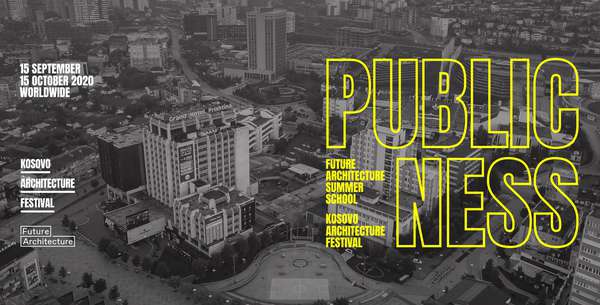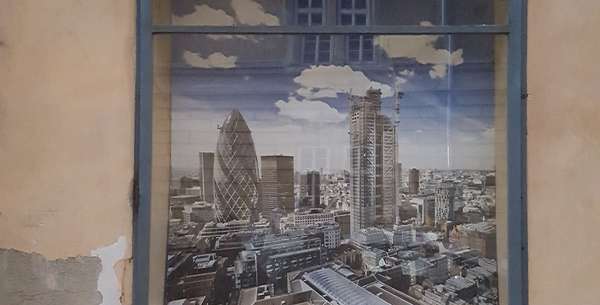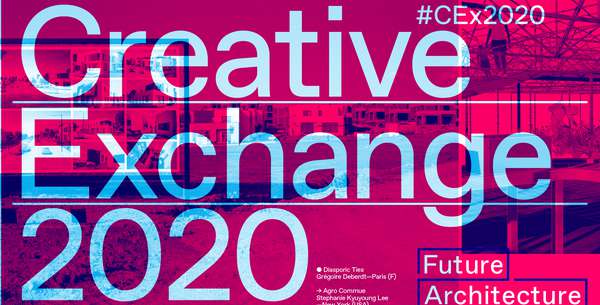Idea by
Goda Verikaite
https://www.nopurposecollective.com/
Call for ideas 2020
Recycling Utopia
Recycling Utopia
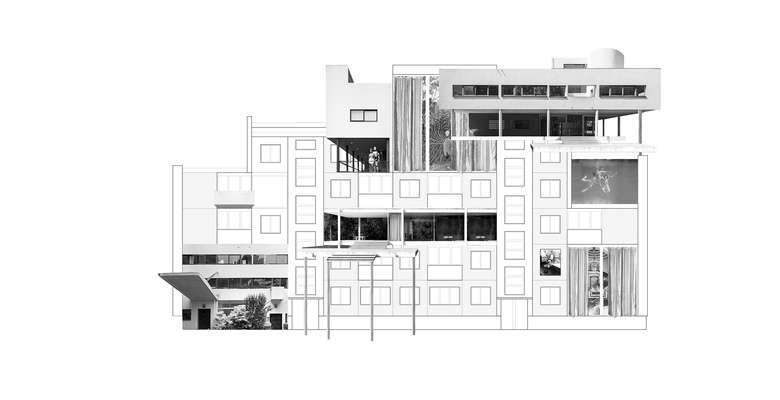
- New alliances
This research focuses on the phenomenon of Socialist mass housing in Lithuania, which was the physical outcome of Utopian promise to provide every Soviet family with its own apartment. In the 1990s, Lithuania underwent radical changes in the wake of its transformation from a Soviet communist system into a democratic and independent state. However, the Soviet mass housing neighbourhoods remained unchanging relics of what had been built sixty years earlier. What is the next step for these prefabricated house-machines?
The project aims to explore possible/impossible futures, by embracing speculation as a method and employing different techniques, such as: modelling, mapping, collaging images and videos, and publishing fictional newspapers. This methodology is relevant not only for the Lithuanian context, but also for the entire former East Bloc countries, allowing to explore different layers of future narratives and offer more challenging ways of looking at the existing urban setting.
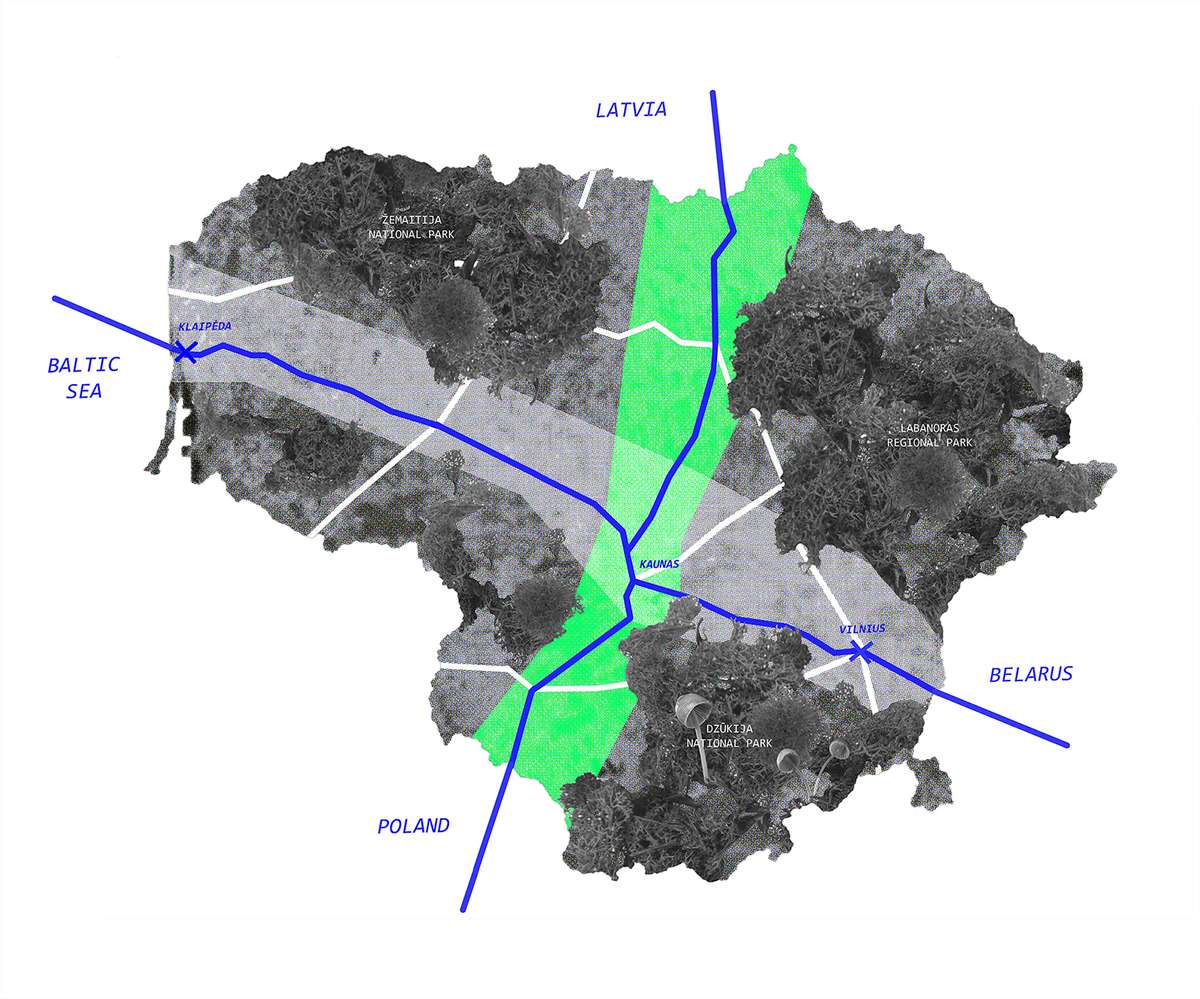
1. A speculative map. Reorganization of the country around the main axis begins.
New systems and ideologies always replace or recycle previous ones. None is perfect but every utopia promises something new.
Imagine. Lithuania after X number of years. Massive investments in biotechnologies have led the country once again to a new system with a mysterious name: FALC (Fully Automated Luxury Communism). This system is powering the reorganization of the country and its cities.

2. Section through Lithuania.
The Dutch artist Constant Nieuwenhuys and other utopians of the 1960s dreamt of a society freed by automation. That society has now arrived, a ludic society that can afford to live in spontaneous luxury. The question in the future will be: What does luxury mean for you? A single-family house? A vagabond life unattached to any particular place or regulations? Is time the ultimate luxury or should it be guaranteed as a basic income for everyone?
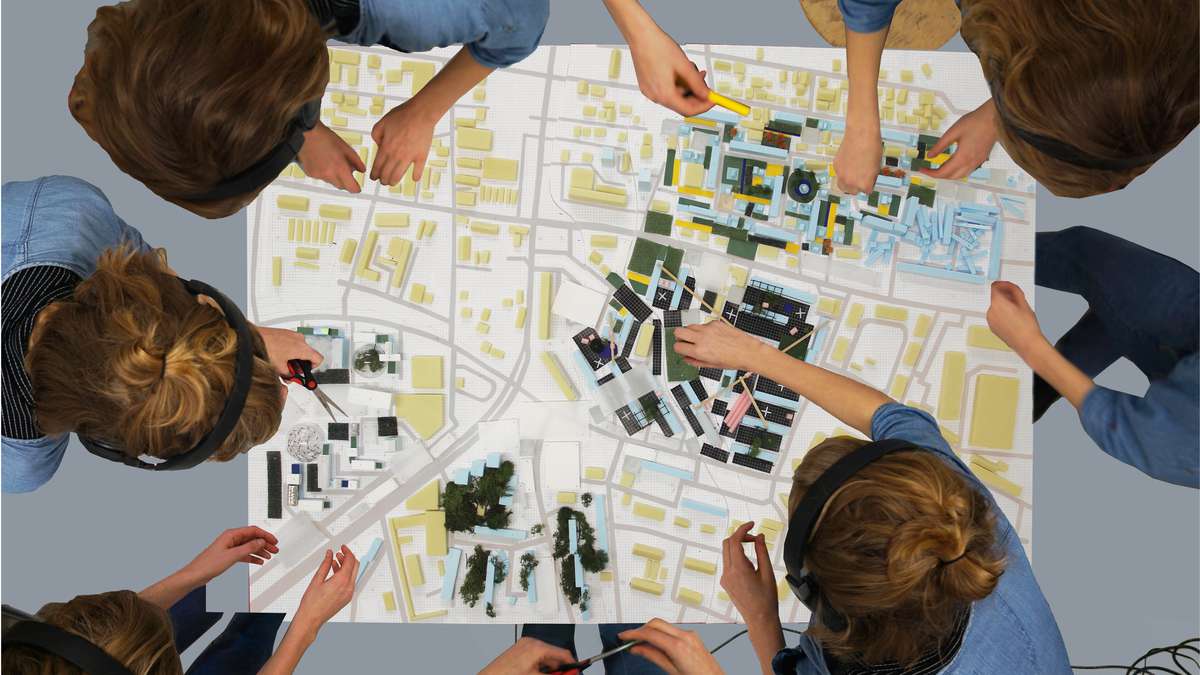
3. Remodelling Žirmūnai
The design suggests a series of speculative scenarios as to how, in X years from now, Žirmūnai (the first Socialist residential district in Lithuania) and blocks of flats (the purest and most adaptable of structures) can change into an experimental playground of ideas.
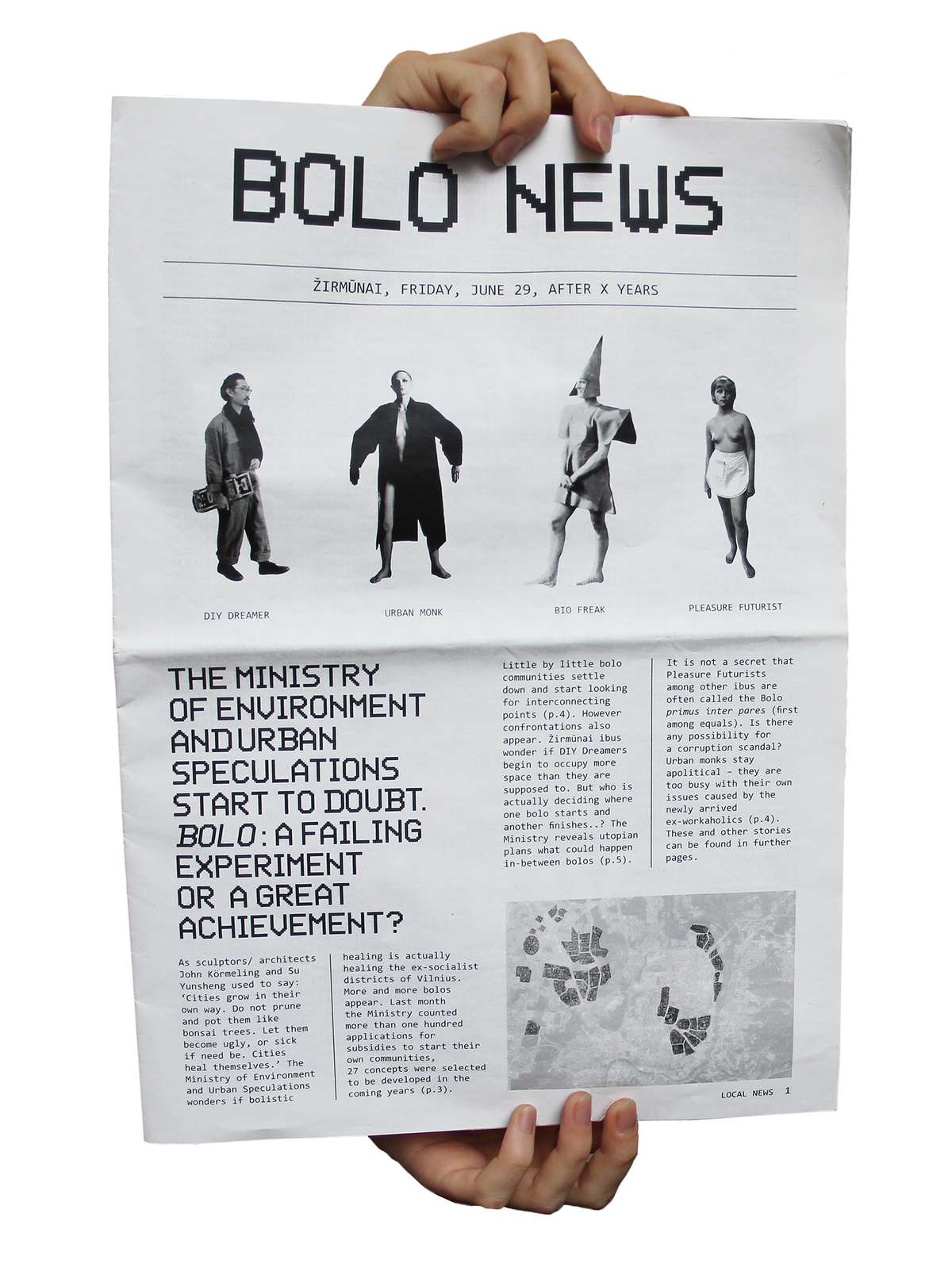
4. Bolo News, a speculative newspaper that keeps you updated on the new developments.
The project adapts the theory of ‘bolos’; independent, decentralized units of people. These units appear according to ‘nima’ (cultural background, common interest and time) that they share. By playing with speculations and paradoxes, it embraces different concepts of luxury, work, leisure, equality and collectivity.
Recycling Utopia
Recycling Utopia

- New alliances
This research focuses on the phenomenon of Socialist mass housing in Lithuania, which was the physical outcome of Utopian promise to provide every Soviet family with its own apartment. In the 1990s, Lithuania underwent radical changes in the wake of its transformation from a Soviet communist system into a democratic and independent state. However, the Soviet mass housing neighbourhoods remained unchanging relics of what had been built sixty years earlier. What is the next step for these prefabricated house-machines?
The project aims to explore possible/impossible futures, by embracing speculation as a method and employing different techniques, such as: modelling, mapping, collaging images and videos, and publishing fictional newspapers. This methodology is relevant not only for the Lithuanian context, but also for the entire former East Bloc countries, allowing to explore different layers of future narratives and offer more challenging ways of looking at the existing urban setting.
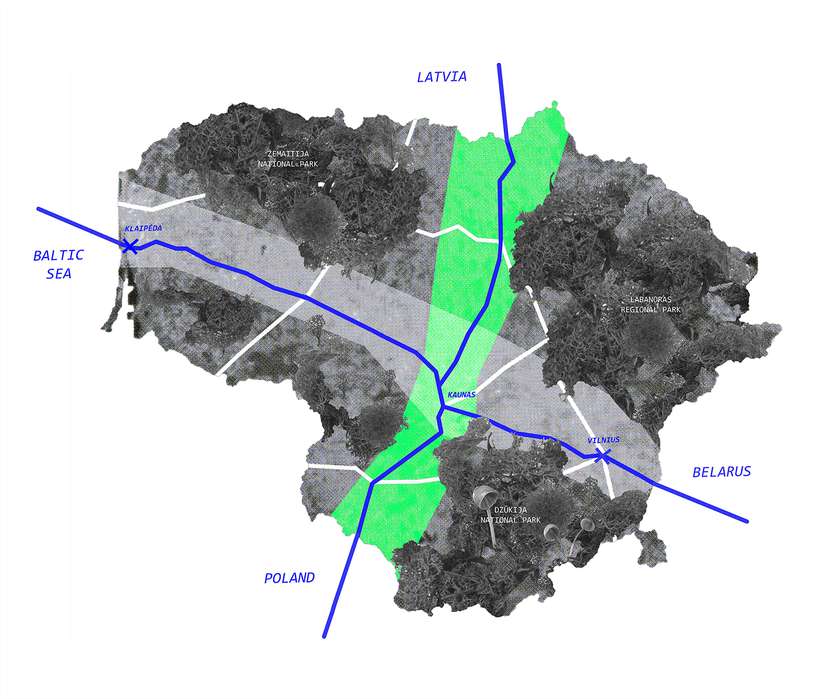
1. A speculative map. Reorganization of the country around the main axis begins.
New systems and ideologies always replace or recycle previous ones. None is perfect but every utopia promises something new.
Imagine. Lithuania after X number of years. Massive investments in biotechnologies have led the country once again to a new system with a mysterious name: FALC (Fully Automated Luxury Communism). This system is powering the reorganization of the country and its cities.

2. Section through Lithuania.
The Dutch artist Constant Nieuwenhuys and other utopians of the 1960s dreamt of a society freed by automation. That society has now arrived, a ludic society that can afford to live in spontaneous luxury. The question in the future will be: What does luxury mean for you? A single-family house? A vagabond life unattached to any particular place or regulations? Is time the ultimate luxury or should it be guaranteed as a basic income for everyone?
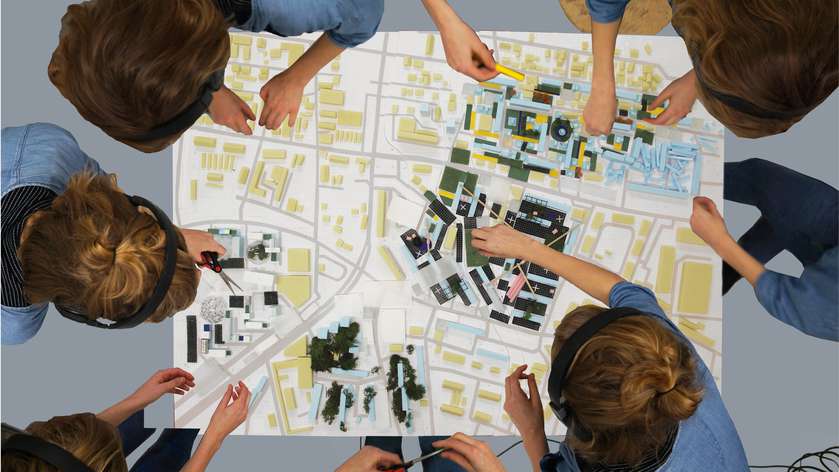
3. Remodelling Žirmūnai
The design suggests a series of speculative scenarios as to how, in X years from now, Žirmūnai (the first Socialist residential district in Lithuania) and blocks of flats (the purest and most adaptable of structures) can change into an experimental playground of ideas.
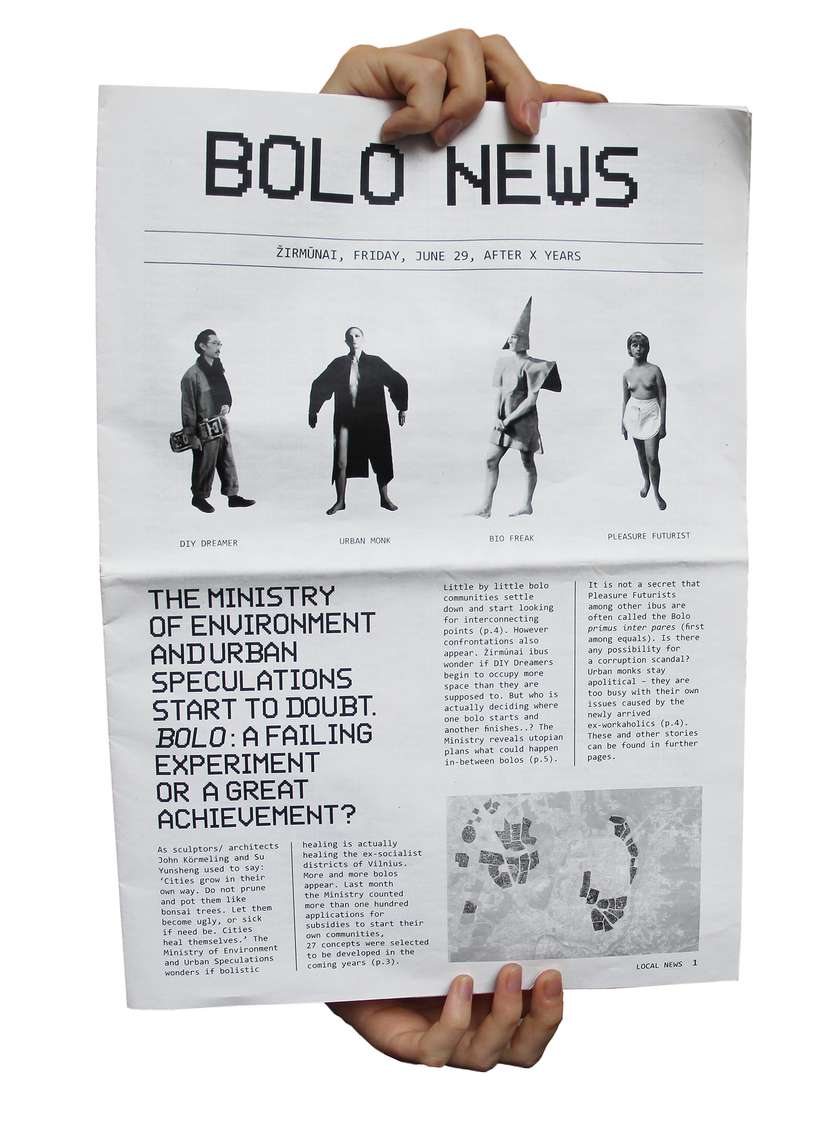
4. Bolo News, a speculative newspaper that keeps you updated on the new developments.
The project adapts the theory of ‘bolos’; independent, decentralized units of people. These units appear according to ‘nima’ (cultural background, common interest and time) that they share. By playing with speculations and paradoxes, it embraces different concepts of luxury, work, leisure, equality and collectivity.
Idea by
Related

Building Narratives
